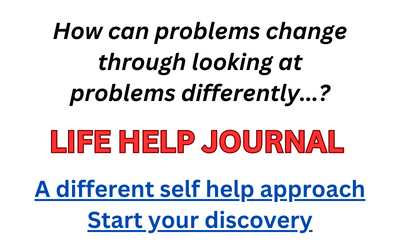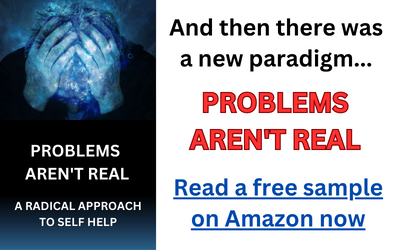It’s typical to respond to depression, anxiety, and other emotional dysfunctions, by trying to “do” something with them. When a person finds him or herself depressed or anxious they often quickly get to the question of ‘how do I deal with this?’ or something similar.
What they’re really inquiring about is what can be done to get rid of the depression, the anxiety, or whatever else. If I were to suggest not to try to get rid of the depression or anxiety this likely would be met with confusion, or perhaps suspicion or even hostility. I may even be suspected of trying to inflict or extend harm.
It’s very logical indeed, at least it seems to be, to try and rid ourselves of harmful experiences. This response is often considered healthy or even a sign of fortitude and high character. (Keep fighting!) But is it the best response? Is it even an effective response?
Before considering this let me offer some methods that, at least superficially, can rid us of depressed or anxious experiences. Medication is one option. Antidepressant and anti-anxiety medications are among the most prescribed pharmaceuticals in existence (which, in itself, is a statement about modern life). Part of the reason for the prevalence of these types of agents is that they provide people who have depression and anxiety a degree of relief, in some cases at least.
The herb St. John’s wort is purported to relieve depression and anxiety. Does it actually work? In my observations St. John’s wort is, in reality, minimally effective at alleviating emotional dysfunction. I know that some people speak highly of the efficacy of St. John’s wort in emotional dysfunctions treatment but I have not witnessed results like this for myself.
Vigorous and regular physical exercise is often suggested as a response to depression and anxiety. I advocate regular exercise for overall health benefits and in my observations it does help with depression, anxiety, and other dysfunctional emotional states, but I’ve found that its helpful properties are very specific. That is, when one is engaged in vigorous exercise they are less likely to feel depressed or anxious at the time they are exercising, and perhaps for some time after the session has ended.
But the depression or anxiety is prone to return sooner or later. This isn’t so very surprising as exercise is not really a response to depression or anxiety; when there is relief it’s a secondary effect as much as anything. These temporary and secondary effects might not be so if one exercises vigorously on a very regular basis: they may, may, become more permanent in nature. Most of us however do not participate in — or train for — triathlons and the like, and so are likely to “relapse” eventually.
I am very enthusiastic about meridian energy therapy along the lines of EFT, or Emotional Freedom Techniques. In my experiences meridian energy therapy provides very clear, and very significant, positive effects on emotional and physical well-being. I also like and recommend The Work, developed by Byron Katie, and the ho’oponopono method as help tools that improve the life experience overall (including reducing depression and anxiety).
Let’s return now to “doing” something about depression and anxiety. While it may seem reasonable to rid ourselves of uncomfortable emotional experiences, trying to do so amounts to engagement: we, in effect, grab hold of the depression and anxiety as we attempt to throw them away. This reality is the basis for Swiss psychiatrist Carl Jung’s famous expression ‘What you resist, persists.’
An alternative response is to observe depression and anxiety from a distance; to watch them, so to speak, but otherwise allow them to be there while remaining as a neutral party. The depression and anxiety are not good, they are not bad, they are not right, they are not wrong — they just are.
Our sole function is to neutrally observe and allow.
Believe it or not this form of allowing is typically more effective, and much easier to carry out, than forms of resistance that attempt to push depression and anxiety out of our experience. But don’t take my word for it: try it for yourself and see what the results are.

